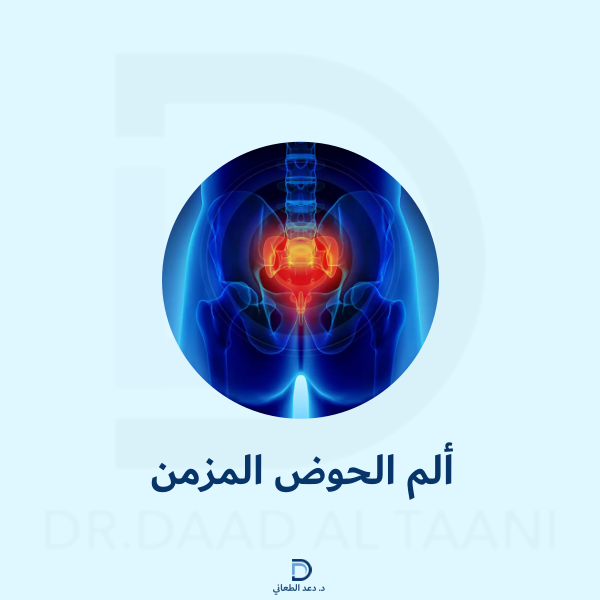Chronic Pelvic Pain
Chronic pelvic pain is a common medical condition that significantly impacts the lives of many individuals. It extends from the lower abdomen to the pelvic region and lasts for more than six months. The severity of the pain varies between individuals, and it can be mild or severe, constant or intermittent. Patients may experience a feeling of heaviness or pressure in the area. The pain may also be associated with other symptoms such as pain during intercourse, or pain while urinating or defecating. Additionally, patients may notice vaginal bleeding or digestive bleeding, which complicates the condition further.
The causes of chronic pelvic pain are varied and differ from person to person. Some of the causes that may lead to this pain include gynecological issues such as ovarian cysts, fibroids in the uterus, and endometriosis. Musculoskeletal conditions like pelvic floor muscle tension, pubic symphysis inflammation, and fibromyalgia can also contribute to pelvic pain. Gastrointestinal issues such as irritable bowel syndrome or intestinal inflammation may also cause pain in this region. In some cases, urinary problems like cystitis or prostatitis may lead to these symptoms as well.
In these situations, it is essential to consult a doctor for an accurate diagnosis and appropriate treatment plan. Available treatments can significantly alleviate symptoms. These include the use of antibiotics to treat infections, pain relievers, or anti-inflammatory medications to reduce pain. Psychological or behavioral therapy may also be necessary in cases associated with psychological stress or depression. Hormonal therapy can address gynecological issues, while surgery may be required to remove cysts, fibroids, or cancerous masses.
Dr. Daad Al-Taani, a specialist in pelvic disorders in Dubai, is considered one of the leading doctors who handle these cases with expertise. She focuses on accurately assessing symptoms and identifying the underlying cause of the pain, which allows for determining the most suitable treatment. Dr. Daad employs a variety of advanced and safe treatments, such as physical therapy, surgical interventions, and sometimes laser treatment, while ensuring a personalized treatment plan for each patient.








